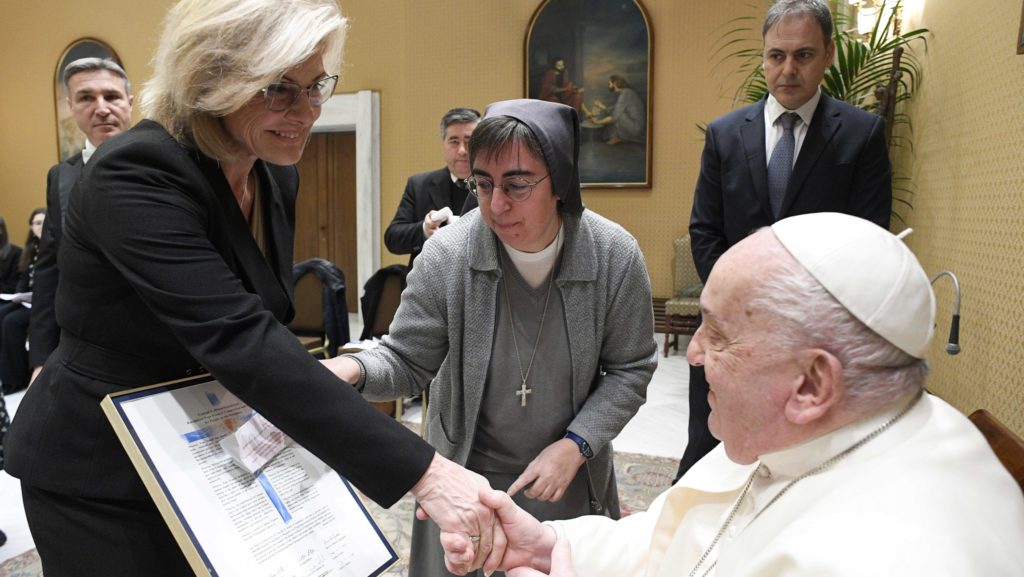Women religious are meant to be serving the poor, marginalized or vulnerable in society, not be working as servants to members of the church, Pope Francis said.
In the past, little was invested in the formation of religious sisters, "far less than in the formation of the clergy," he said, "since sisters and other women are thought to be 'second class citizens.'"
That mindset must stop, he told members of the Conrad Hilton Foundation meeting at the Vatican Jan. 22, "and you as a foundation are helping to bring the church out of this clerical mindset."
The pope met with members of the foundation's board of directors as well as some sisters who were taking part in a conference dedicated to religious women working in the field of communication. The conference, taking place in Rome, was organized by the Vatican in collaboration with the foundation.
"The need for sisters to pursue continuing education and training is urgent," the pope told his guests. "Their work at the borders, on the peripheries and among the poor, requires training and competence."
"The mission of sisters is to serve the least among us. It is not to be servants to anyone," he told them.
"Often we hear complaints that there are not enough sisters in positions of responsibility, in dioceses, the Roman Curia and universities," he said. The complaints are valid, and "we need to overcome a clerical and chauvinist mindset."
"Thanks be to God that now in the Curia we have a woman prefect in the dicastery for religious" as well as women in other top Vatican positions, he said.
"Thanks be to God that the sisters are stepping forward. They know how to do things better than men," he said.
However, he said, "I also hear bishops say, 'I would like to appoint nuns in some diocesan offices, but their superiors will not release them,'" the pope said.
He appealed to the major superiors of communities of women religious to "be generous, cultivate a vision of the universal church and of a mission that goes beyond the confines of your institute" and allow their members to work elsewhere.
Pope Francis thanked the foundation for its philanthropy, showing "how such generosity and commitment can transform the lives of those who find themselves in situations of vulnerability."
"The service you freely offer in the fields of education, health, refugee assistance and the fight against poverty is a concrete testimony of love and compassion," he said, calling them to continue to focus on compassion, which "is not throwing money into the hands of another without looking them in the eyes," but is drawing near and "suffering with."
"As the numbers of the poor and excluded in our world continue to increase, which is notable, you have chosen to commit yourselves actively to promoting human dignity, personally with passion and compassion, like the good Samaritan," he said.

